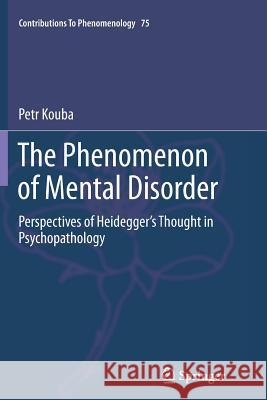The Phenomenon of Mental Disorder: Perspectives of Heidegger's Thought in Psychopathology » książka
topmenu
The Phenomenon of Mental Disorder: Perspectives of Heidegger's Thought in Psychopathology
ISBN-13: 9783319362373 / Angielski / Miękka / 2016 / 214 str.
The Phenomenon of Mental Disorder: Perspectives of Heidegger's Thought in Psychopathology
ISBN-13: 9783319362373 / Angielski / Miękka / 2016 / 214 str.
cena 200,77
(netto: 191,21 VAT: 5%)
Najniższa cena z 30 dni: 192,74
(netto: 191,21 VAT: 5%)
Najniższa cena z 30 dni: 192,74
Termin realizacji zamówienia:
ok. 22 dni roboczych
Dostawa w 2026 r.
ok. 22 dni roboczych
Dostawa w 2026 r.
Darmowa dostawa!
This book provides a critical introduction to Heidegger's impact on psychiatry and psychology, and has a focus on the application of his philosophy to psychiatry.











